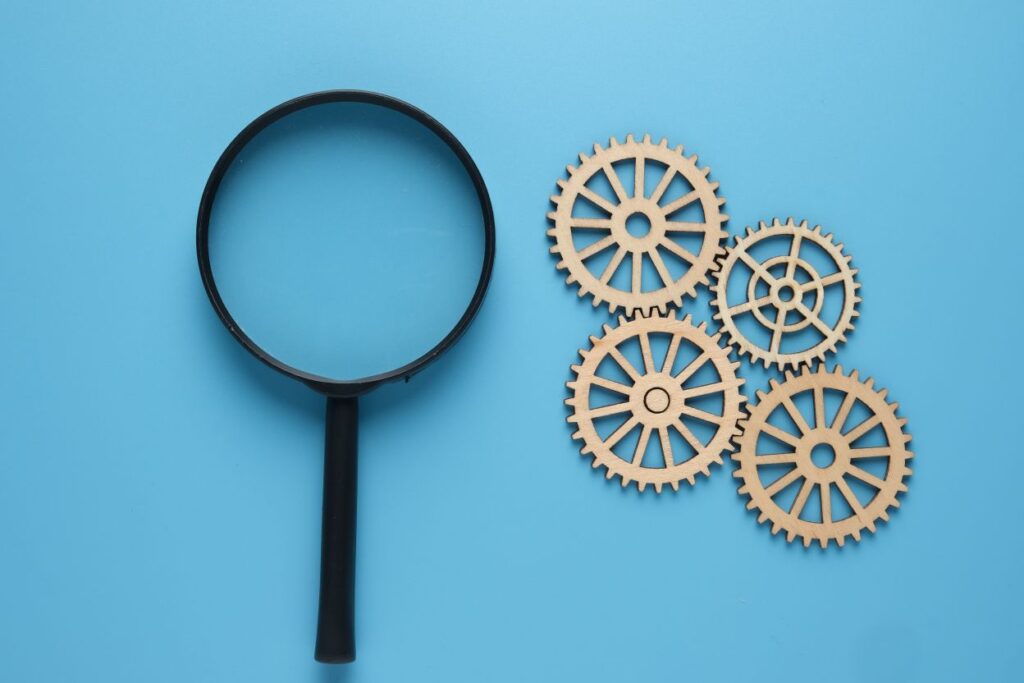When examining different approaches to understanding and analyzing social phenomena, the micro and macro levels of analysis are often utilized. These levels offer a distinct sociological perspective for studying the intricacies of human behavior and societal dynamics.
In this blog post, we will explore the concept of a micro-level focus and provide examples to illustrate its application in various contexts. By the end, you will have a better understanding of how a micro-level perspective can shed light on individual interactions and their implications in the natural world.
Defining Micro-Level Focus
Micro-level focus refers to an analytical perspective that emphasizes the examination of small-scale, individual-level interactions and behaviors within specific social contexts. It is a lens through which researchers explore the nuances of human behavior, subjective experiences, and the dynamics between individuals within a larger social structure. This level of analysis seeks to understand how individuals shape and are shaped by their immediate social environments.
At the micro level, researchers zoom in on the interactions, behaviors, and experiences of individuals as they navigate their social worlds. This sociological perspective shows and recognizes that social phenomena emerge from the actions and interactions of individuals. By examining the micro-level, researchers gain insights into the motivations, beliefs, and decision-making processes of individuals, as well as the impact of social structures on their actions.
Micro-level analysis often involves qualitative research methods that allow for in-depth exploration and understanding of individual experiences. Techniques such as interviews, observations, case studies, and ethnography are commonly employed to collect rich, detailed data about personal narratives, emotions, social interactions, and cultural practices.
One key aspect of the micro-level focus is the recognition of agency and individual subjectivity. It acknowledges that individuals actively interpret and respond to their social environments, and their actions are not solely determined by external forces. By examining individual agency, researchers gain insights into how people navigate and negotiate social structures, norms, and expectations.
Micro-level analysis also highlights the importance of context. It recognizes that social interactions and behaviors are shaped by specific social settings, cultural norms, and historical factors. By studying interactions within particular contexts, researchers can uncover the social, cultural, and structural factors that influence individual behaviors and choices.
Moreover, the micro-level focus complements the macro-level perspective, which examines broader social structures, institutions, and systemic patterns. While the macro-level provides a bird’s-eye view of social phenomena, the micro-level zooms in to understand the micro foundations upon which larger social structures are built. Both perspectives are essential for a comprehensive understanding of social phenomena, as they illuminate different dimensions and levels of sociological analysis.
Need help conducting micro level focus and achieve big results?
Contact Growth Hackers
The Importance of Micro-Level Focus
The micro-level focus is essential for several reasons. It offers unique insights and understanding that complement the broader macro-level analysis. Here are some reasons why a micro-level focus is necessary:
- Understanding Individual Behavior: The micro-level perspective allows researchers to understand the intricacies of individual behavior, including motivations, beliefs, attitudes, and decision-making processes. It recognizes that individuals are not mere passive recipients of social structures but active agents who shape their own lives and navigate their social environments. By studying individual behaviors at a micro level, researchers can gain a nuanced understanding of the factors influencing human actions.
- Uncovering Complexity: Social phenomena are often complex and multifaceted, influenced by a multitude of factors. The micro-level focus enables researchers to explore the intricacies and subtleties of human behavior within specific social contexts. It allows for an in-depth analysis of the richness and diversity of individual experiences, interactions, and interpretations. By examining these complexities, researchers can uncover patterns, variations, and exceptions that may not be evident in macro-level analyses.
- Contextualizing Social Structures: While macro-level analysis focuses on social structures, institutions, and systemic patterns, the micro-level complements it by examining how individuals interact with and are influenced by these larger social forces. It helps contextualize the macro-level phenomena by uncovering the micro foundations upon which they are built. By studying the micro-level, researchers can explore how social structures are reproduced, negotiated, or challenged in individual interactions and behaviors.
- Capturing Subjectivity and Lived Experiences: The micro-level focus recognizes the importance of subjective experiences and individual narratives. It allows researchers to capture the lived experiences, emotions, and perspectives of individuals. By understanding how individuals interpret and make sense of their social worlds, researchers gain insights into the complexities of human cognition, emotions, and identity formation. This understanding is crucial for comprehending the diverse ways in which individuals navigate and respond to social structures and cultural norms.
- Informing Interventions and Policies: By studying the micro-level, researchers can identify specific areas of intervention and develop targeted policies that address individual-level needs and challenges. Micro-level analysis provides detailed insights into the factors influencing behaviors and outcomes, allowing policymakers and practitioners to design interventions that are more effective, tailored, and sensitive to individual circumstances. It helps bridge the gap between broad social policies and the actual experiences of individuals.
- Exploring Social Change: Social change often emerges from the cumulative effects of individual actions and interactions. The micro-level focus allows researchers to track and analyze the dynamics of change within individuals and small groups. By understanding how new ideas, attitudes, and behaviors spread among individuals, researchers can gain insights into processes of social change and innovation.
Examples Illustrating Micro-level Focus
Do you have a familiar idea which of the following examples illustrates a micro level focus? These examples illustrate how and where micro-level analysis can be applied in certain situations.
Example 1: Face-to-Face Interview Studies
Imagine a researcher conducting face-to-face interviews with individuals to investigate their experiences with workplace culture. This scenario exemplifies a micro-level focus as it involves analyzing the personal accounts, emotions, and perceptions of individuals who have directly experienced such incidents. The researcher delves into the intricate details of each person’s encounter, capturing the nuances of their interactions and how these encounters have affected their lives. By employing a micro-level perspective, the researcher can uncover insights about the psychological, emotional, and social impact of workplace culture on an individual level.
Example 2: Observing Playground Interactions
Consider a sociologist observing children’s interactions on a playground. By closely examining how children form friendships, resolve conflicts, and negotiate their roles within the group, the researcher adopts a micro-level focus. This approach allows for an understanding of how individual behaviors, attitudes, and socialization processes occur within the context of children’s immediate peer networks. Through careful observation and sociological imagination, the researcher can identify patterns, power dynamics, and social norms that influence the dynamics of children’s play and socialization, revealing valuable insights into the micro-level workings of socialization among young individuals.
Example 3: Analyzing Online Forums and Comment Sections
In the digital age, social interactions and communities have expanded into online spaces. Analyzing online forums, comment sections, or social media conversations can provide valuable insights into individual-level interactions. By focusing on the exchanges between users, their discussions, and the ways in which they negotiate meaning, researchers can gain a micro-level understanding of how people engage with others online. This approach allows for the exploration of topics such as identity construction, collective behavior, and the dynamics of online communities. By examining the micro-level interactions within these digital spaces, researchers can uncover the complexities of human behavior in the virtual realm.
Example 4: Ethnographic Research in a Community
Ethnographic research involves immersing oneself in a particular community or social group to gain a comprehensive understanding of its members’ lives, beliefs, and practices. By living among the community members and actively participating in their activities, the researcher can observe and document the intricate details of their daily routines, social interactions, and cultural practices. This micro-level approach allows researchers to capture the richness and complexity of individual experiences within a specific social context.
Example 5: Case Studies of Individuals
In psychology, case studies are often conducted to gain in-depth sociological knowledge about a particular individual or a small group of individuals. These studies involve collecting detailed information about the person’s background, experiences, behaviors, and psychological processes. By analyzing individual cases, researchers can explore unique aspects of human behavior and delve into the complex interplay between personal factors and environmental influences. This micro-level analysis provides valuable insights into the intricacies of human cognition, emotions, and development.
Example 6: Analysis of Face-to-Face Therapeutic Interactions
In the field of psychotherapy, analyzing face-to-face therapeutic interactions is a prime example of a micro-level focus. Therapists closely examine the verbal and non-verbal communication between themselves and their clients. By paying attention to individual narratives and emotions, therapists gain insight into how individuals navigate personal challenges, develop coping strategies, and make meaning of their experiences. This micro-level perspective allows therapists to tailor interventions and provide personalized support to their clients.
Example 7: Microsociological Studies of Everyday Interactions
Sociology emerged from the development of modern science, the industrial revolution, and the emergence of different forms of government. On the other hand, microsociology focuses on the analysis of small-scale interactions in everyday human social life, such as conversations, greetings, and gestures. Researchers in this field study how individuals negotiate social norms, identities, and power dynamics within these brief encounters. By examining micro-level interactions, microsociologists shed light on how larger social structures and institutions are reproduced and challenged through these everyday practices. Through techniques like CRO marketing, conversation analysis and ethnomethodology, researchers uncover the subtle ways in which individuals construct and maintain social order in their day-to-day interactions.
Get ready to embrace micro level focus today and elevate your success!
Tips in Conducting Micro-Level Focus Research
When conducting research with a micro-level focus, there are several tips to keep in mind to ensure a comprehensive and effective analysis. Here are some key tips for conducting micro-level research:
- Clearly define the research question: Start by clearly defining the research question or objective of your study. This will guide your data collection and analysis, ensuring that you maintain a clear focus on the micro-level interactions and behaviors you intend to explore.
- Select appropriate research methods: Choose research methods that allow for in-depth exploration of individual-level interactions and behaviors. Qualitative methods such as interviews, observations, case studies, and ethnography are particularly suited for capturing rich and nuanced data at the micro level. These methods provide opportunities to engage with participants, understand their perspectives, and uncover the complexities of their experiences.
- Pay attention to sampling: Consider the appropriate sampling strategy for your research. Depending on your research question, purpose, and resources, you may opt for convenience sampling, purposive sampling, or snowball sampling. Ensure that your sample includes a diverse range of participants who represent the population of interest, allowing for a comprehensive understanding of the micro-level dynamics.
- Establish rapport and trust: Building rapport and trust with participants is crucial in micro-level research. Develop a respectful and empathetic approach to engage with participants and create a comfortable environment for sharing their experiences. This helps ensure the authenticity and depth of the data collected.
- Use multiple data collection techniques: Employing multiple data collection techniques can provide a more comprehensive view of the micro-level interactions. For example, combining interviews with observations or document analysis can help triangulate and validate the findings. This enhances the reliability and robustness of the analysis.
- Pay attention to context: Context is critical in micro-level focus research. Understand and document the social, cultural, and historical contexts in which interactions occur. Consider the influence of social norms, power dynamics, and cultural values on individuals’ behaviors and interpretations. Contextual information enriches the analysis and helps in interpreting the findings accurately.
- Analyze data iteratively: Analyze your data iteratively to identify emerging patterns, themes, or social relationships. Utilize qualitative analysis techniques such as thematic analysis, content analysis, or grounded sociological theories to systematically explore the data and generate meaningful insights. Constantly refer back to the research question to ensure that your analysis remains focused on the micro-level phenomena of interest.
- Ensure confidentiality and ethical considerations: Respect participants’ confidentiality and privacy throughout the research process. Obtain informed consent from participants, and follow ethical guidelines and regulations relevant to your research context. Maintain the anonymity of participants by using pseudonyms or other means to protect their identities when presenting or publishing your findings.
- Triangulate findings: Triangulation involves cross-validating findings from different data sources or perspectives. By triangulating findings, you enhance the credibility and reliability of your analysis. Compare and contrast the data collected through various methods or from different participants to identify converging themes or divergences.
- Reflect on researcher biases: Be mindful of your own biases and preconceptions as a researcher. Maintain reflexivity by regularly reflecting on how your personal beliefs, experiences, and perspectives may influence the research process and analysis. Consider how your positionality may impact data collection and interpretation.
By following these tips, you can conduct micro-level research that yields rich insights into individual interactions and behaviors, providing a deeper understanding of the complexities of human behavior within specific social contexts.
Final Thoughts on Which Of The Following Examples Illustrates A Micro Level Focus
The examples provided above offer further illustrations of the micro-level focus in various domains of research. Whether it’s studying individual experiences within specific communities, conducting case studies, analyzing therapeutic interactions, or examining everyday interactions, a micro-level perspective enables researchers to understand the intricate workings of human behavior and social dynamics in everyday life. By zooming in on the details of individual-level interactions, researchers gain valuable insights into the complexities of human existence and the interplay between individuals and their social environments.
Just like how researchers conduct a micro-level focus study to get to know more about people and how society shapes interactions, you need to do your research for targeting the right market. But if you’re finding it hard to target the right customers for your business, leave the work to Growth Hackers.
Growth Hackers is one of the best LinkedIn lead generation agencies helping businesses from all over the world grow. There is no fluff with Growth Hackers. We help entrepreneurs and business owners experience the power of micro-level focus, increase their productivity, generate qualified leads, optimize their conversion rate, gather and analyze data analytics, acquire and retain users and increase sales. We go further than brand awareness and exposure. We make sure that the strategies we implement move the needle so your business grow, strive and succeed. If you too want your business to reach new heights, contact Growth Hackers today so we can discuss about your brand and create a custom growth plan for you. You’re just one click away to skyrocket your business.







